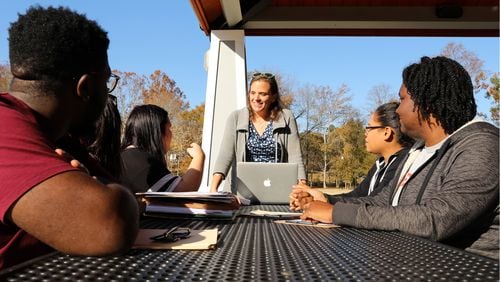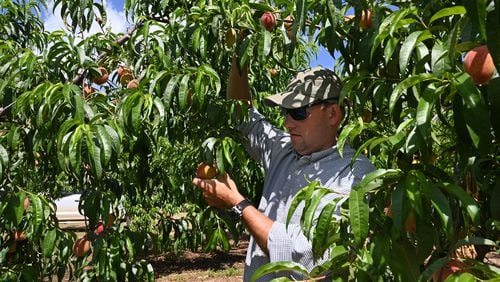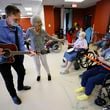Claudia Davis is a juggler: She balances working on a degree at Kennesaw State, being a single mom to her son and working full-time for the Gwinnett County Health Department. When KSU launched a support program for students who are parents, Davis welcomed the help.
“I’ve been to two other schools, and I’d never heard of a program like this,” she said. “I wanted to meet more people like me.”
Davis joined the group organized by Allison Garefino, KSU’s clinical director of Children and Family programs. She launched those programs in 2015 to give her students hands-on experiences and skills they can deliver to the community, such as student-parents.
“We have so many non-traditional students, and we saw a way to support those who are parenting and may be at risk for dropping out or not graduating,” said Garefino. “I have a tremendous amount of clinical experience doing behavior modifications that can create stable, positive and healthy environments. But they’re usually offered in camps and classrooms. Our idea was to offer those same strategies to parents here.”
Garefino said out of KSU’s 43,000 student population, about 20% are raising a child, either as a biological parent or an aunt, uncle, grandparent or sibling. Based on those numbers, she applied for and won a $20,000 grant to launch a support program for that demographic. She and a team of 15 trained undergrad mentors and social work graduate students recently completed the third semester of working with about 30 student-parents. Each term, the group has tackled topics such as mental health, social capital, early childhood education, financial literacy, budgeting and employment opportunities.
“We end each session with, ‘What can we help you with next time?’ ” said Garefino. “One of the top issues: time management. We hear their stress and look at ways to make life more predictable. For instance, if you say to your child, ‘Do X first, then you can do Y,’ it helps focus on what’s important and decreases arguing and stress.”
Similar strategies helped Davis get a grip on a hectic schedule.
“I never took the time to build a schedule until I got into this program, and they gave us easy templates to use,” she said. “I was really able to utilize that. I also learned some good coping strategies for when I get frustrated.”
Connecting with other students who handle child-rearing responsibilities also made a difference, said Davis.
“I felt comfortable and knew I wasn’t alone with some of the things I go through with my son,” she added.
Along with bi-weekly meetings, Garefino and her staff held weekly “booster sessions” and drop-in office hours when participants could address individual questions and concerns. Next semester, she’s adding stand-alone workshops to help students who shy away from committing to an entire term of meetings.
“We want to meet our parent where they’re at,” she said. “If we can increase the wellbeing and health of an entire family by focusing on the parents, that trickles down to the kids. And it helps students stay in college and graduate to higher-paying jobs. Whenever they come, it’s a win-win for them and the kids.”
Information about KSU’s Children and Family programs are online at childrenandfamilyprograms.org.
SEND US YOUR STORIES. Each week we look at programs, projects and successful endeavors at area schools, from pre-K to grad school. To suggest a story, contact H.M. Cauley at hm_cauley@yahoo.com or 770-744-3042.
About the Author






